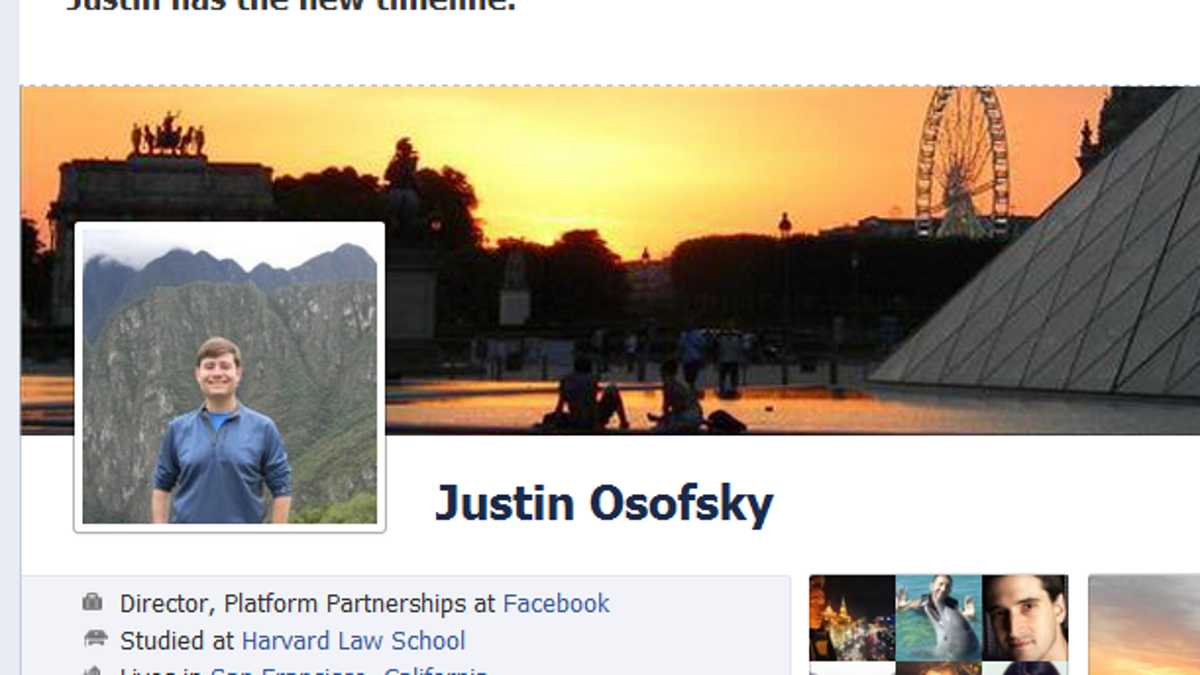Drinking Facebook's social Kool-Aid in a Las Vegas suite
Is the social network a squid with a million tentacles or the ocean that surrounds it? I went to the top of the Wynn Hotel to find out.

LAS VEGAS--There's no huge Facebook stage or anticipated Facebook keynote at CES, but the social network is still all over this electronics show.
Mercedes-Benz announced here that Facebook would be one of the apps in its new telematics system. Kodak revealed more Facebook integration in its new cameras, even as the legacy company is reportedly nearing a bankruptcy filing. Yahoo's IntoNow is using Facebook to connect friends via its social TV-watching experience for special Spike TV coverage of everything happening at CES.
In short, there's seemingly nowhere Facebook's many tentacles won't spread.
Much of this business is the domain of Justin Osofsky, who heads up partnerships for Facebook. He's young, well-spoken, unassuming, Harvard-educated, and a Louisiana native who actually considers each question directed at him--you don't get that a lot at CES with so many talking points constantly being hurled at you. For a guy whose job is to grow the platform reach of such a huge social cephalopod, he himself is totally lacking any squid-like qualities.
During a break from prowling the floor at CES, I meet with Osofsky in a suite near the top of the Wynn Hotel. Both of us are relative newcomers to Las Vegas and before starting our interview, we take a moment to check out the view--Sin City in all its garish glory rising out of the desert floor. Ironically, neither of us take a photo of the scene to post to our timelines later. Then again, for all I know, that hotel window could have been just another platform for Facebook that Osofsky is preparing to unveil to me: make a gesture on the surface and up snaps a picture of the view to instantly share with your network. After all, far less practical things are seen at CES.
"Facebook should be a part of every screen," Osofsky tells me later when I ask him about platforms.
Aha! I knew it!
"From cars to consoles to TVs to tablets," he continues.
Oh. So, no 30th story plate-glass windows, then. Guess not. Not yet, anyway.
Osofosky talks about enriching activities by sharing them with friends, about "reimagining experiences to be social at their very core," and about the Open Graph API that allows companies to leverage Facebook as a platform for making their content more social.
I offer up the criticisms I've heard time and again about the early fruits of the Open Graph, particularly Spotify and the news-sharing apps that seem to only clog up the ticker and expose my most embarrassing musical guilty pleasures. For me, it is a tentacle too far.
Without being defensive, Osofosky points out that 12 million people who turned on the Yahoo News experience in Facebook clearly have less of a problem with more tentacles.
Of course, the problem is, I'm coming at this the wrong way. Facebook isn't really a platform for us, for users. We don't pay Facebook a dime--well, except for you silly folks who bought Facebook credits for stocking stuffers--which means the product in the scenario is actually us. The platform and its tentacles are actually all about bringing us to the partners--Facebook users are the goods in a B2B transaction.
"Interestingly from a publisher perspective is that they're tapping into these new demographics," also known as that coveted treasure trove of young-ish Facebook users who otherwise might not even think to read outlets like the Guardian.
So far, Facebook as a platform has been mainly about media sharing--music, news, video content. But Osofsky gets excited when he talks about Facebook's future and the possibilities for partnership.
"We think we're in the early days as a platform company...Our platform gives these tools and building blocks that then [allow] companies in a wide range of industries to re-think: What does it mean to build an experience that's social at the core? It's really powerful and transformational in that way."
Mark Zuckerberg, Facebook's co-founder and CEO, scares me a little when he talks about a coming society that shares everything. When Osofsky trumpets essentially the same concept, it almost sounds like a cure for cancer. This guy is good.
But are a "wide range of industries" really looking to make their cores more social? It seems more like a narrow group interested in just using social to strengthen their cores--I'm thinking about cars, game consoles, and other sectors that are moving from token inclusion of social features to standardized integration of social platforms.
At first it seems tough to see how social platforms spread out into the wider range of industries that Osofsky envisions in the short-term, but cloud and crowdsourcing technologies are already bringing some of the same concepts into all manner of businesses--perhaps John Deere will be debuting social argricultural techniques at a future CES.
My time with Osofsky is up--he's got to rush off to another appointment. Taking the elevator down, I think about the idea of Facebook's ever-multiplying tentacles, Osofsky's "wide range of industries" looking to go social, and all the new tentacles that that will inevitably create. Then I remember the view from the suite--the vast, open desert and mountain peaks surrounding and cradling the ostentatious metropolis--and I reconsider my somewhat rude anthropomorphic representation of the social network.
Maybe social isn't the squid. Maybe it's more like the ocean surrounding it. Or the pristine environment encircling the city. In other words, it's all around us, and platforms like Osofsky's are just there to help us reach out and touch it--and help business reach back in our direction, to be sure.
Then again, perhaps Facebook is the squid and the ocean.

